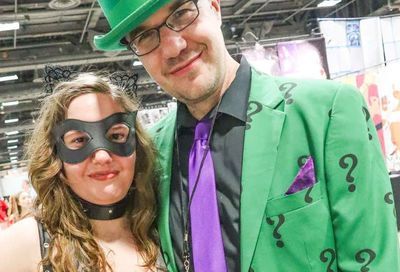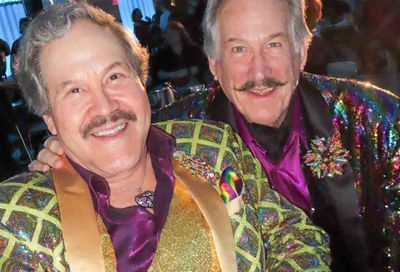McCrory claims North Carolina had “verbal agreement” with NBA on amending HB 2
N.C. governor talks about provisions that would have allowed the 2017 All-Star Game to stay in Charlotte

North Carolina Gov. Pat McCrory (R) claimed last week that state lawmakers had reached a “total verbal agreement” with the NBA regarding changes to the Tar Heel State’s HB 2 law that would have kept the 2017 All-Star Game in Charlotte.
In an interview with The Charlotte Observer, McCrory claimed that the agreement would have involved lawmakers amending the law to allow people to sue for discrimination in state court, developing a task force to study instances of discrimination, and making sure the state’s nondiscrimination language aligned with federal nondiscrimination language (both N.C. law and federal law currently lack any protections based on sexual orientation or gender identity). But the Observer, citing a source close to the negotiations, says that there never was any official agreement. That source says the NBA had been pushing the state to adopt two other provisions: changing how transgender people can use out-of-state birth certificates, and increasing penalties for crimes committed in bathrooms.
In a June 15 letter to NBA Commissioner Adam Silver, the governor wrote that North Carolina wanted to be part of “finding solutions that appropriately balance privacy and equality.” McCrory also promised to pass the three provisions on which he said there was agreement with the NBA.
“With these changes, Charlotte and the State of North Carolina will have more nondiscrimination protections in place than when the NBA selected Charlotte as the host city for the All-Star Game in 2015,” McCrory wrote.
But McCrory told the Observer that the agreement with the NBA was “later sabotaged” by unnamed Republican legislators who were angry over a leaked version of the possible changes to the law. And he pointed the finger at Democrats and LGBT advocates who balked at anything short of full repeal of HB 2.
Eventually, legislators did change the law to allow people to pursue lawsuits in cases where they feel they have been discriminated against on their race, religion, and several other characteristics — but not sexual orientation or gender identity. Additionally, the “fix” left in place the prohibition on local governments passing pro-LGBT ordinances and restrictions on which restrooms transgender people are allowed to use. In response, the NBA pulled the All-Star Game from Charlotte until significant alterations were made to the law. The NBA did leave open the possibility that Charlotte could host the 2019 All-Star Game if the law is revised by then.
McCrory claims that conversations with Silver were “very constructive” given the pressure that the commissioner was under to punish the state from LGBT advocates, specifically from the Human Rights Campaign (HRC), which has been leading the fight for repeal.
“He was getting a great deal of pressure from the national organization pushing this left-wing agenda, and they were putting pressure on their corporate entities, many of whom had a solid misunderstanding of what our law actually did,” said McCrory.
Support Metro Weekly’s Journalism
These are challenging times for news organizations. And yet it’s crucial we stay active and provide vital resources and information to both our local readers and the world. So won’t you please take a moment and consider supporting Metro Weekly with a membership? For as little as $5 a month, you can help ensure Metro Weekly magazine and MetroWeekly.com remain free, viable resources as we provide the best, most diverse, culturally-resonant LGBTQ coverage in both the D.C. region and around the world. Memberships come with exclusive perks and discounts, your own personal digital delivery of each week’s magazine (and an archive), access to our Member's Lounge when it launches this fall, and exclusive members-only items like Metro Weekly Membership Mugs and Tote Bags! Check out all our membership levels here and please join us today!



















You must be logged in to post a comment.